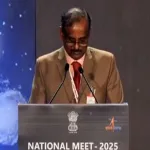PRIDE’S DOWNFALL
“Pride goeth before destruction, and a haughty spirit before a fall,” is a proverb that has resonated through centuries, originating from the biblical Book of Proverbs. This timeless wisdom cautions against the dangers of excessive pride and arrogance, yet history and contemporary society are replete with examples of individuals and civilizations who succumbed to this vice.
Despite knowing the potential for downfall, the prevalence of pride remains strikingly persistent. This essay delves into the reasons why individuals with prideful mindsets seem to flourish and the eventual consequences they face, drawing insights from various intellectuals across disciplines and the rich cultural heritage of Kashmiri poets and divine personalities.
Aristotle, in his “Nicomachean Ethics,” distinguished between proper pride and hubris. Proper pride, he argued, was the mean between vanity and undue humility. It was a virtue that involved self-respect and a realistic understanding of one’s worth.
Hubris, on the other hand, was excessive pride that led to disdain for others and ultimately to one’s downfall. Aristotle’s view underscores that while a certain level of pride is essential for self-esteem and ambition, it is the excess that leads to negative consequences.
In literature, the tragic flaw of hubris is a common theme. The ancient Greeks dramatized this in their tragedies, where heroes like Oedipus and Achilles fell from grace due to their excessive pride. Shakespeare’s works, such as “Macbeth” and “King Lear,” also explore how pride leads to the protagonist’s ruin. These narratives serve as cautionary tales, illustrating that while pride can drive individuals to great heights, it also blinds them to their vulnerabilities and the potential for disaster.
Rabindranath Tagore, the revered Indian poet, and philosopher, often spoke about the dangers of pride and the virtues of humility. In his poem “Where the Mind is Without Fear,” Tagore envisions a world where:
“Where the clear stream of reason has not lost its way into the dreary desert sand of dead habit;
Where the mind is led forward by thee into ever-widening thought and action—”
Tagore’s emphasis on reason and progressive thought reflects a rejection of prideful stagnation and a call for humility in the pursuit of knowledge and growth.
Mahatma Gandhi, a paragon of humility, often warned against the perils of pride. He believed that true greatness lay in selflessness and service to others. Gandhi’s principle of “Satyagraha” (truth-force) was rooted in humility and non-violence, standing in stark contrast to the prideful pursuit of power. He once said:
“The best way to find yourself is to lose yourself in the service of others.”
In the political realm, leaders with hubristic tendencies can rise to power by projecting confidence and decisiveness. Historian Barbara Tuchman, in her book “The March of Folly,” examines how pride and arrogance have led to disastrous decisions in political history.
Tuchman argues that leaders who are blinded by their own sense of infallibility often ignore advice and evidence that contradicts their views, leading to avoidable failures. The recent resurgence of populist leaders who exploit nationalist sentiments and present themselves as saviors of their nations is a testament to the enduring appeal of prideful rhetoric.
Cultural perspectives on pride vary, but many traditions emphasize the importance of humility. In Eastern philosophy, particularly within the teachings of Buddhism and Taoism, pride is seen as a barrier to enlightenment and harmony. The Taoist concept of “wuwei” (non-action) advocates for a humble and effortless approach to life, contrasting sharply with the prideful pursuit of power and recognition.
Despite the initial success that prideful individuals may achieve, history is replete with examples of their eventual downfall. The story of the Titanic, often dubbed the “unsinkable ship,” serves as a poignant metaphor for the dangers of hubris. The ship’s designers and operators, blinded by their confidence in its invincibility, ignored warnings and took unnecessary risks, leading to one of the most infamous maritime disasters in history.
In the corporate world, the collapse of companies like Enron and Lehman Brothers highlights how excessive pride and unethical behavior can lead to catastrophic failures. Leaders of these companies, driven by greed and a sense of invulnerability, engaged in reckless practices that ultimately led to financial ruin and widespread consequences.
Kashmir, with its rich spiritual and poetic tradition, offers profound insights into the nature of pride and its consequences.
Pandit Kalhana, the 12th-century Kashmiri historian and author of the “Rajatarangini” (River of Kings), offers historical insights into the consequences of pride. In his chronicle of Kashmir’s kings, Kalhana meticulously documents how hubris led to the downfall of many rulers.
He highlights how prideful decisions, driven by a sense of invincibility, often resulted in disastrous outcomes for their kingdoms. Kalhana’s work serves as a historical reminder that humility and wisdom are essential for sustaining leadership and prosperity.
One of the most revered figures in Kashmiri mysticism is Lal Ded, also known as Lalleshwari, a 14th-century mystic poetess. Her verses often explore the themes of humility and the perils of ego. She wrote:
“By inner purity and outward humility,
One attains the ultimate truth,
Pride is but a shadow,
Obscuring the light of the soul.”
Lal Ded’s teachings emphasize that true spiritual enlightenment comes through humility and self-purification, warning against the deceptive nature of pride that blinds individuals to their inner light.
Another significant figure, Sheikh Noor-ud-din Noorani, also known as Nund Rishi, founded the Rishi order in Kashmir. His verses reflect a deep understanding of the human condition and the dangers of arrogance:
“Pride is a veil over the heart,
Blinding us from seeing the divine within,
In humility lies the path to God,
In arrogance, the seeds of our fall.”
Nund Rishi’s words remind us that pride separates individuals from their spiritual essence and from God, while humility paves the way to divine connection and inner peace.
A contemporary Kashmiri poet, Agha Shahid Ali, provides a modern reflection on the complexities of pride and humility in his works. In his poem “Postcard from Kashmir,” he writes:
“Kashmir shrinks into my mailbox,
my home a neat four by six inches.
I always loved neatness. Now I hold
the half-inch Himalayas in my hand.”
Ali’s poetry often touches on themes of loss and longing, reminding us of the transient nature of pride and the enduring importance of humility and connection to one’s roots.
Basharat Peer, a contemporary journalist and author of “Curfewed Night,” offers a poignant exploration of pride and humility through the lens of Kashmir’s ongoing conflict. Peer’s narrative intertwines personal memoir with political history, emphasizing the human cost of prideful and rigid political stances. His work underscores the importance of empathy, understanding, and humility in resolving conflicts and fostering peace.
The wisdom of Kashmiri poets and divine personalities, such as Lal Ded and Sheikh Noor-ud-din Noorani, further reinforces this timeless lesson. Their teachings remind us that humility, self-awareness, and a connection to the divine are key to navigating the complexities of pride and achieving a life of true fulfillment and spiritual enlightenment.
The integration of insights from both ancient and contemporary thinkers enriches our understanding of the delicate balance between pride and humility. The teachings of Lal Ded and Nund Rishi, combined with the reflections of Tagore, Gandhi, Ali, Kalhana, Peer, and Roy, provide a comprehensive framework for navigating the complexities of pride.
These intellectuals collectively emphasize that while pride can drive ambition and achievement, it must be tempered with humility and self-awareness to prevent downfall. They advocate for a mindful approach to life, where self-respect does not devolve into arrogance and where ambition is balanced with ethical considerations and empathy for others.
The proverb “Pride goeth before destruction, and a haughty spirit before a fall” endures as a powerful reminder of the inherent risks associated with excessive pride. Through the exploration of historical and contemporary perspectives, we learn that pride, while potentially a motivator for greatness, often carries within it the seeds of its own undoing.
The adage “pride hath a fall” endures because it encapsulates a fundamental truth about human nature. While pride can drive individuals to achieve great things, it also carries the seeds of its own destruction. The flourishing of prideful mindsets in contemporary society can be attributed to various factors, including cultural shifts, cognitive biases, and the allure of short-term success.
However, the inevitable fall of those who succumb to excessive pride serves as a reminder of the importance of humility. Intellectuals across disciplines emphasize that self-awareness, ethical behavior, and a realistic assessment of one’s abilities are crucial for sustained success. As history and contemporary examples illustrate, the balance between pride and humility is delicate but essential for avoiding the pitfalls of hubris and achieving true greatness.
The wisdom of Kashmiri poets and divine personalities, alongside reflections from Indian and contemporary intellectuals, reinforces the timeless lesson that humility, self-awareness, and a connection to the divine are key to navigating the complexities of pride. By heeding these lessons, individuals and societies can aspire to achieve true greatness without falling prey to the destructive forces of hubris.
( Author is RK Columnist and can be reached at: [email protected])








